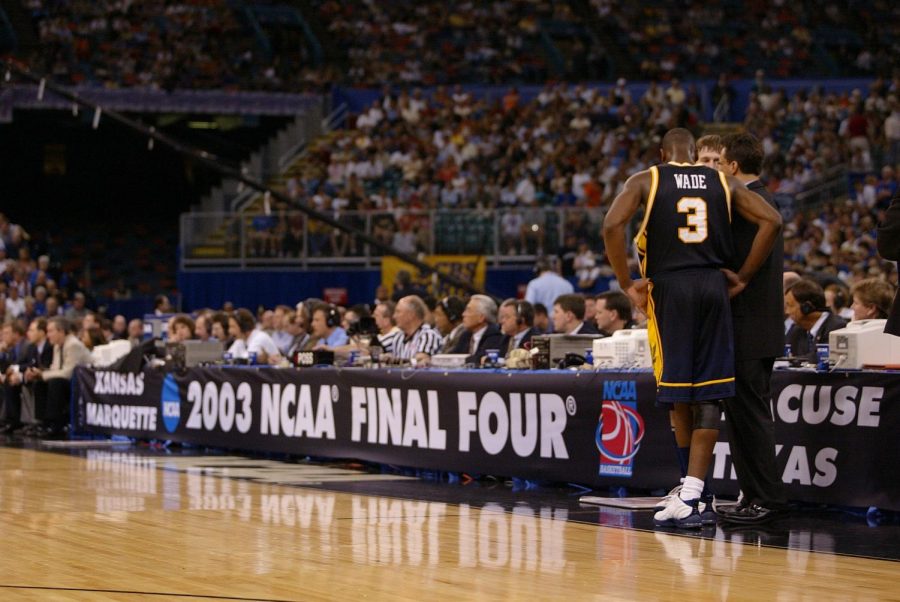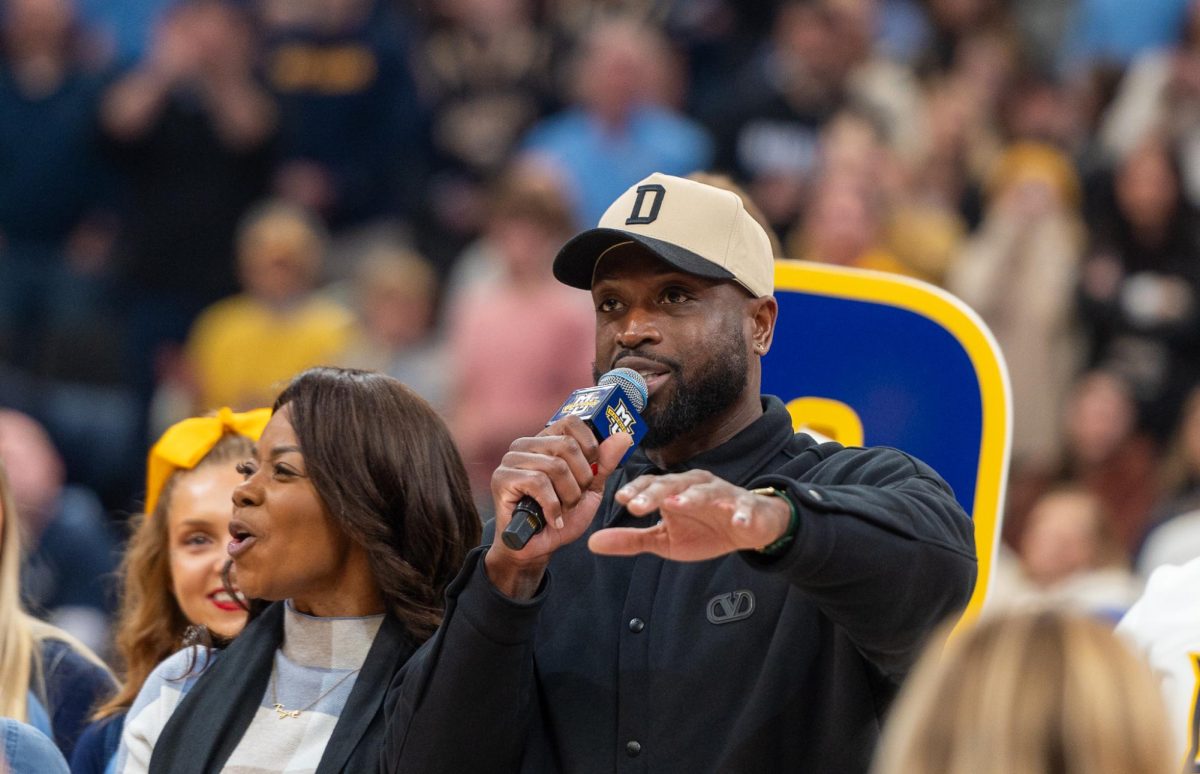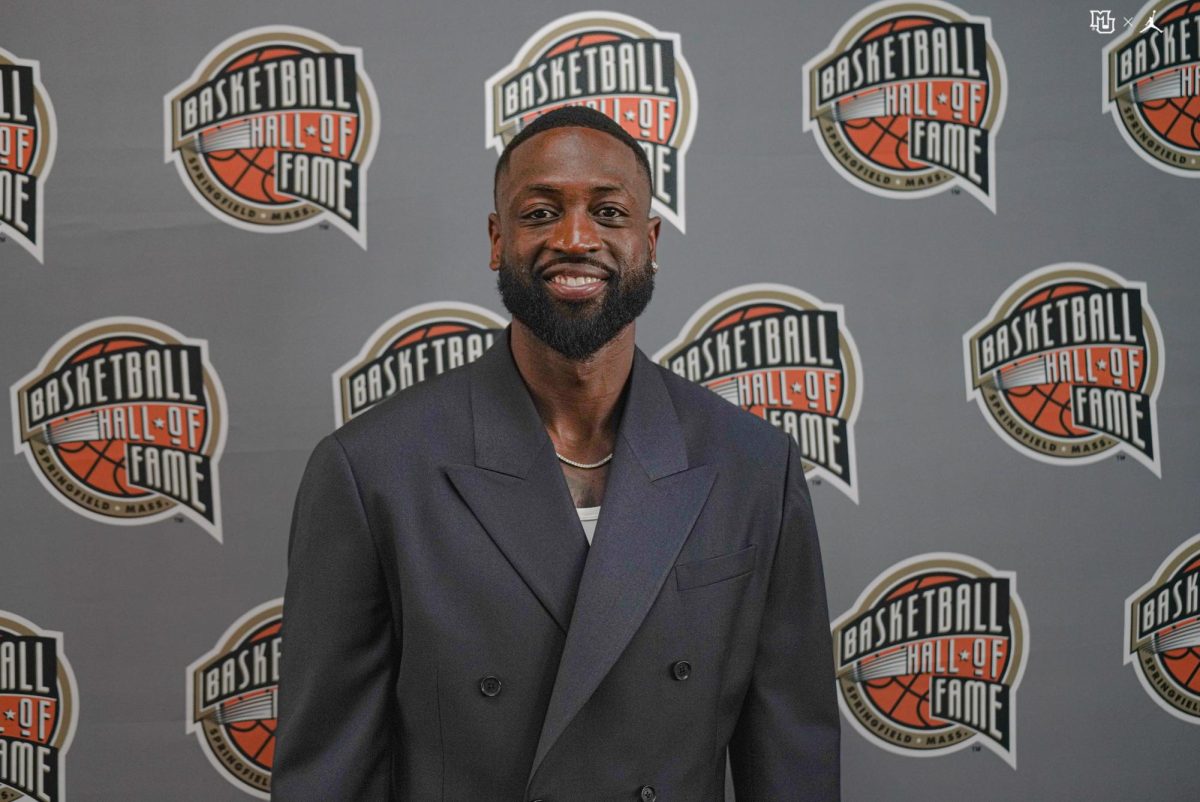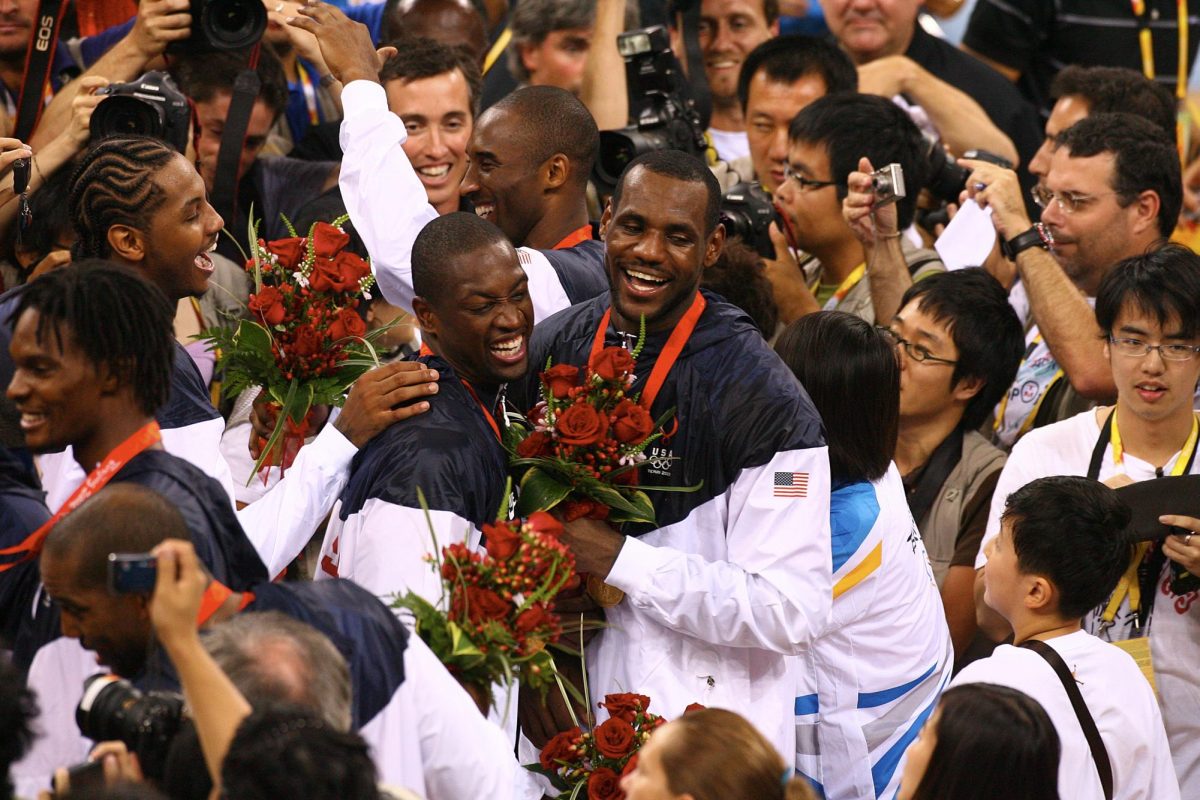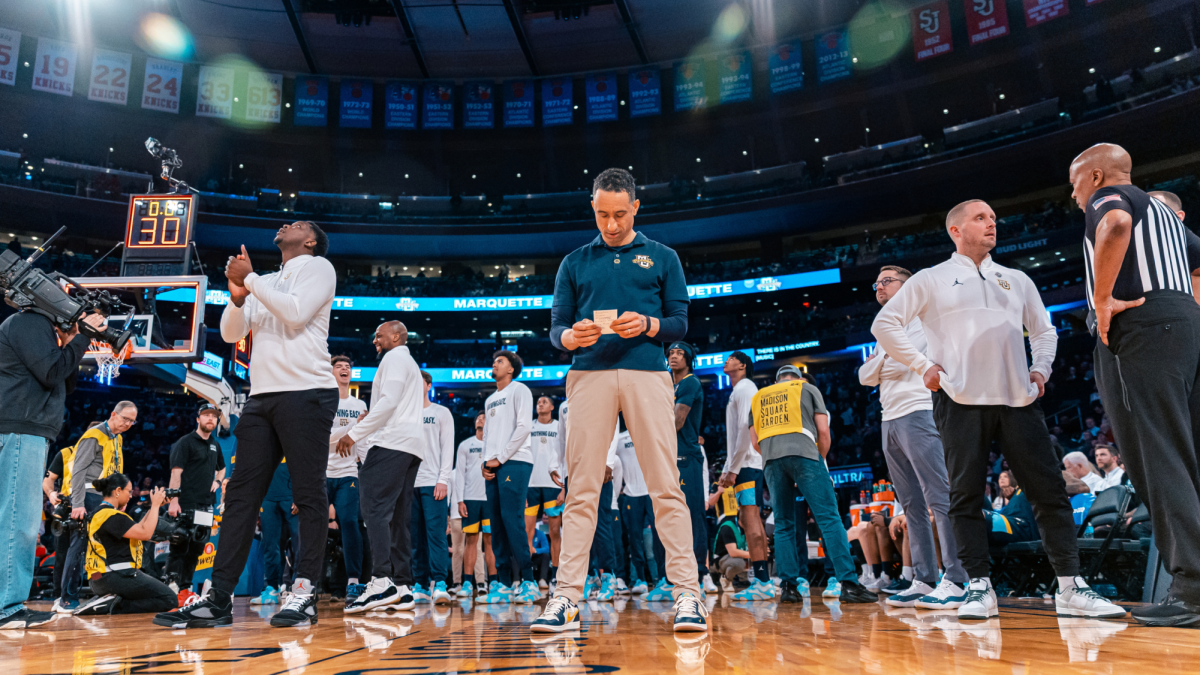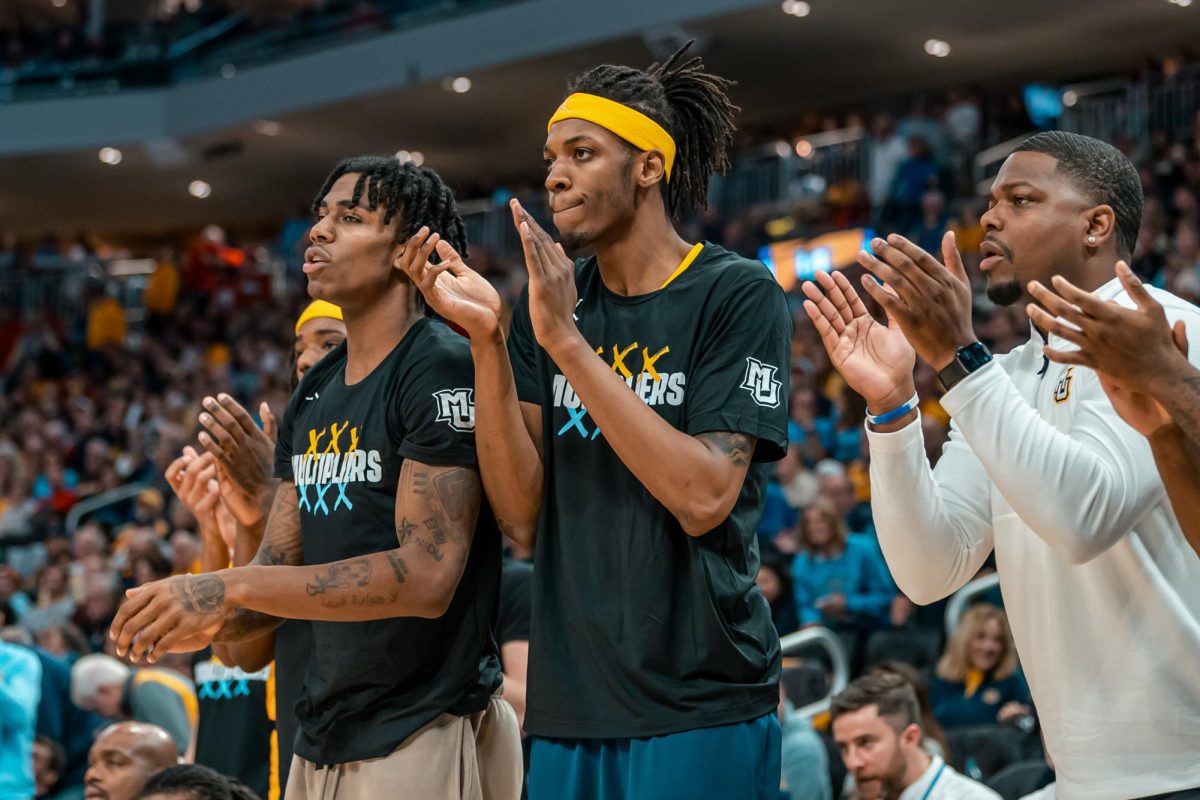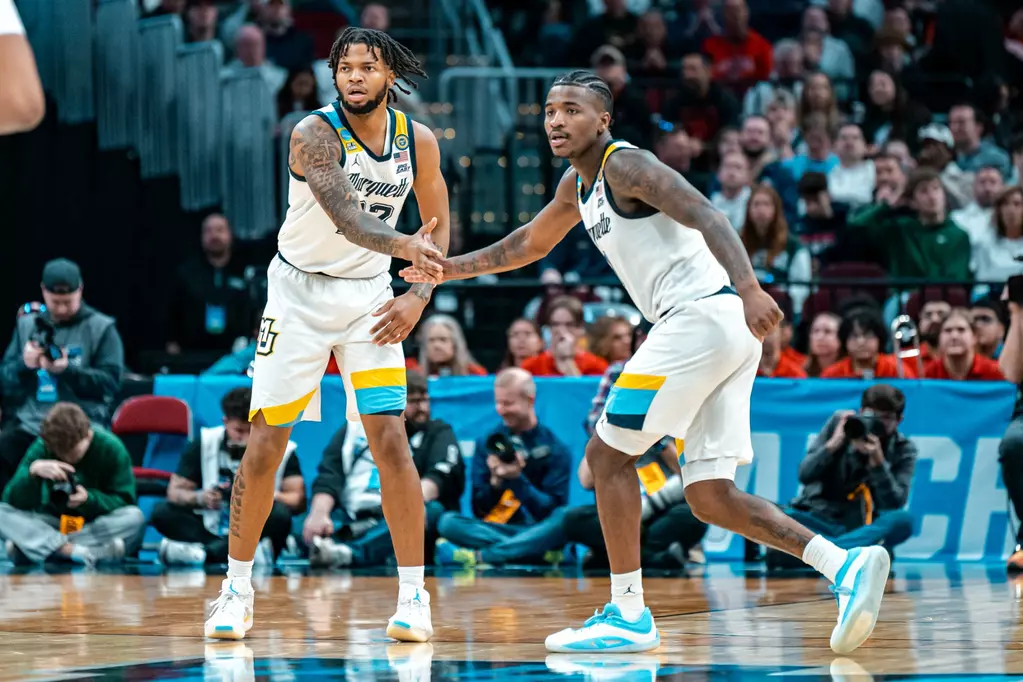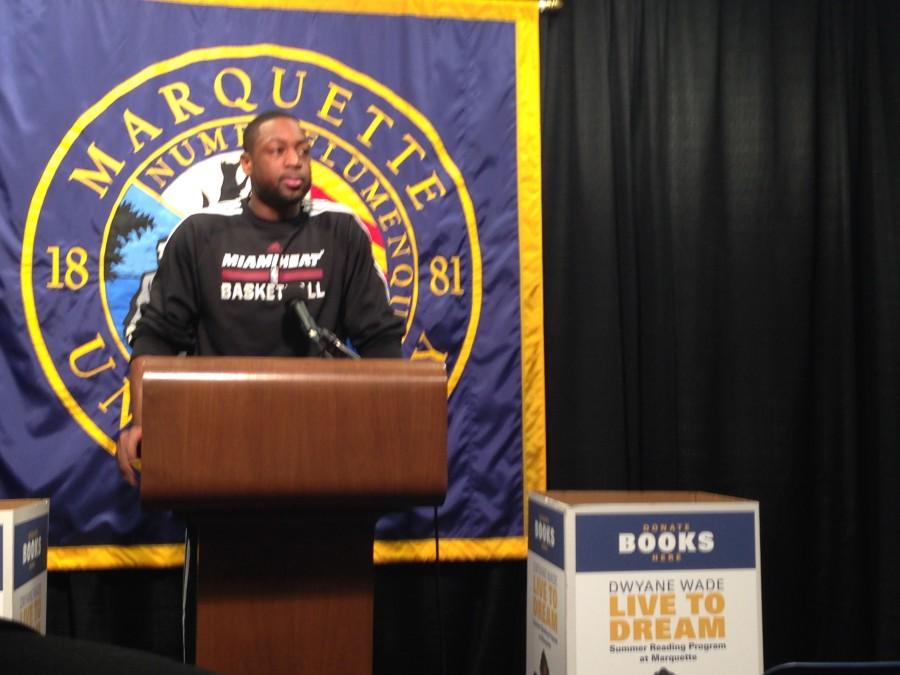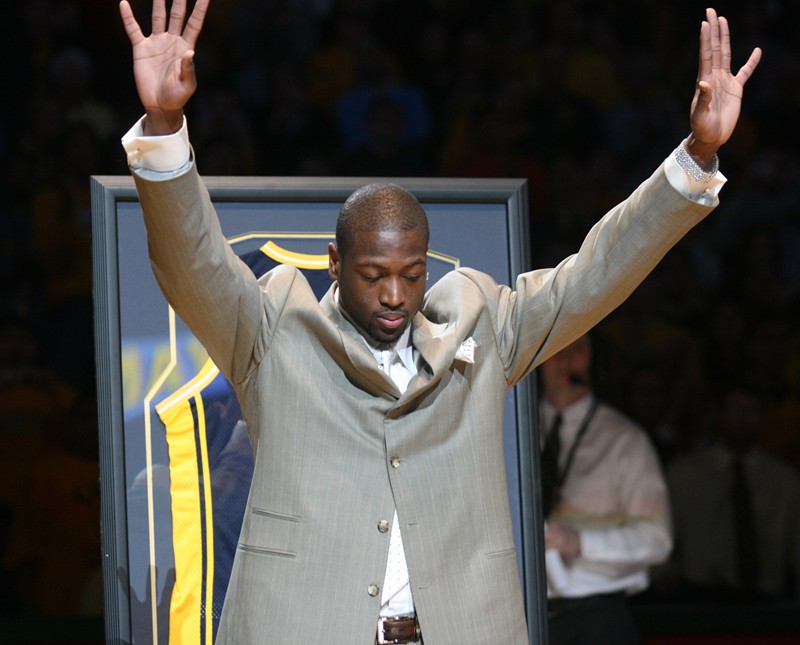A crowded Fiserv Forum interview room buzzing with chatter quickly goes silent. The man of the hour walks in wearing a black suit with a white shirt, black tie and a sleek collar pin.
He smiles looking back at a picture of himself in a Marquette jersey from nearly two decades ago, says, “Who’s that guy?” and sits down ready to reminisce about 20 years of college and professional basketball, which includes wearing the red of the Miami Heat, Cleveland Cavaliers and Chicago Bulls. It will come to an end this April when he retires at age 37.
The story of how Marquette’s most accomplished alumnus in the National Basketball Association arrives to campus in 2000 has a humble beginning.
Dwyane Wade’s list of prospective suitors does not resemble most of now-head coach Steve Wojciechowski’s recruiting targets. There are not dozens of possible schools. Not even a handful. Three schools offer him scholarships.
“Maybe two-and-a-half,” Wade quips.
Rob Jeter, then an assistant under former Marquette head coach Mike Deane, is the first coach to reach out to Wade. Wade’s high school coach, Jack Fitzgerald, takes him to a Marquette-Wisconsin game to give him “a taste of Marquette.” It’s probably not the taste Marquette wants its recruits to get. Marquette loses 61-45 and only scores 10 points in the first half.
“Dwyane turned to me at halftime and said, ‘Coach, I think I could play here,'” Fitzgerald says.
Lori Nickel describes the Golden Eagles as resembling “an intramural team at times” in the next day’s issue of the Milwaukee Journal Sentinel. The only upset against No. 20 Wisconsin, as Nickel puts it, is in the stomachs of Marquette fans.
When the athletic department fires Deane, new head coach Tom Crean continues recruiting Wade, and thankfully for Marquette, the recruitment is better than the 10-point first half.
Then-Marquette head coach Tom Crean, who succeeds Deane in 1999, comes into Wade’s house to visit him, his future mother-in-law Darlene Funches and Fitzgerald.
Growing up, Wade’s father isn’t heavily involved in Wade’s life while his mother is in and out of jail. As a result, Wade spends a lot of time with the family of his girlfriend Siohvaughn Funches, who he eventually marries and divorces.
Crean has three things: a shoe box, a chart and a model of an arena, as Fitzgerald remembers it.
“I saw a lot of presentations (with other kids), but I really thought Tom Crean gave one of the best home visits I’ve ever seen,” Fitzgerald says. “Everyone kind of gives the same spiel about the dorms and campus life.”
The chart has every AAU game Wade played in. Next to it is which Marquette coach watched the game. Each and every one had a complementing name.
“That kind of impressed me that they were really interested that they’ve been to every one of Dwyane’s AAU games,” Fitzgerald says.
The model is a replica of the United Center, where the Chicago Bulls play. A miniature Wade stands in the middle of the court with his high school number, 25.
“Dwyane got a big kick out of that. He said, ‘Can I have that?'” Fitzgerald says. “Crean says, ‘Well, no. I can’t give you anything.'”
The coaches tell Wade to put what’s in the shoe box on. It’s a cap and gown.
“It looked like a pair of shoes, and I’m here thinking, ‘These guys can’t give him a pair of shoes. … I know that can’t be legal,'” Fitzgerald says. “He comes out wearing a Marquette cap and gown, and that impressed the mother-in-law, so they hit all three of us during the visit.”
Wade, who describes himself at that time as “just a shy kid from Chicago that had some talent in basketball,” did not have the test scores most Division I schools were looking for.
“I was struggling to pass my ACT at the time,” Wade says. “I was starting to let my mind go toward the next route for me. Maybe junior college or things of that nature.”
That doesn’t bother Crean, though.
“He promised me that I will be at this university,” Wade recalls. “I later found out that he didn’t have any clearance to promise me that. Marquette had never taken a prop-48 before.”
Wade says he never heard things like that before.
“That meant a lot to me,” Wade says. “His goal was for me to graduate. I never had nobody even talk to me about those things with me and believe that I could do those things.”
Lack of clearance aside, the promise has Wade confident about Crean and Marquette men’s basketball.
“I was sold on him,” Wade says. “I was sold on him being the leader of men. I wanted to be part of his vision of turning the Marquette University program around, and I believed him.”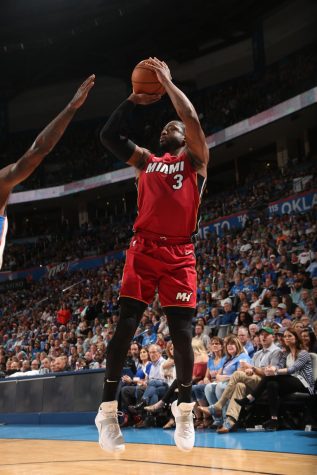
Fitzgerald has seen plenty of talented players from his high school coaching days, but Wade sticks out for his incredible athleticism and drive. Fitzgerald institutes a drill where Wade isn’t allowed to drive to the basket to negate his incredible driving ability. If Fitzgerald has to punish Wade, he keeps him out of practice.
Wade takes a visit to DePaul as a favor to Fitzgerald, who is friends with longtime DePaul women’s basketball coach Doug Bruno and other Blue Demon coaches, but the best choice for Wade seems obvious to Quentin Richardson, who hosts Wade at DePaul.
“Quentin (Richardson) actually thought that Cardell Henry would take better care of Dwyane at Marquette,” Fitzgerald says. “Quentin didn’t give DePaul a very good rap.”
He also takes a visit to Illinois State, but Fitzgerald describes the Redbirds as a “distant second.”
Henry has possibly the easiest job as Wade’s host, which includes playing video games and hanging out.
“I didn’t take him that many places. He was already sold,” Henry says. “I kind of picked up on his energy and his vibes that he was coming anyway. I kept it low-key and I kept the little money that we had ‘per diem.'”
The easiness ends at the visit. Henry can still recall Wade’s intensity in practices once they were both on campus.
“He was fierce. He was a competitor,” Henry says. “I thought I was fast with and without the ball, but every time we had a sprint or anything, I looked to the side, whether it was to the left or to the right, and D-Wade was like right there with me.”
That quickness leads to three NBA titles, an Olympic gold medal and a plethora of other awards.
More than 18 years after his basketball career takes off, Wade gets up from his seat at the front of Fiserv’s 60-seat interview room, takes another look at the picture of the “shy kid from a Chicago” and leaves the room with media slowly trailing him.

